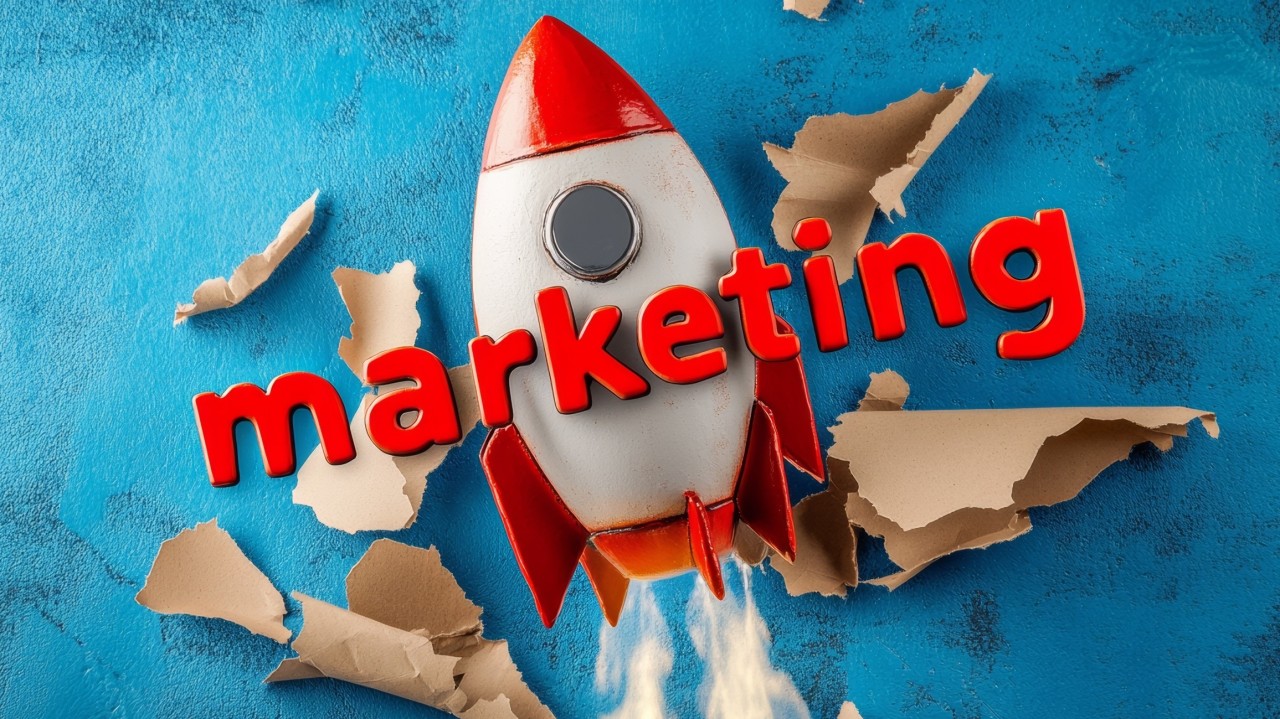News
The Impact of SEO on Your Business
Search Engine Optimisation (SEO) has become one of the most critical aspects of digital marketing in the modern business landscape. As online competition grows, businesses are increasingly turning to SEO to improve their online visibility, increase organic traffic, and drive conversions. However, many business owners still underestimate the true potential of SEO and its ability to transform their bottom line. This article explores the profound impact that SEO can have on your business, discussing its role in enhancing visibility, driving qualified traffic, improving user experience, and ultimately increasing sales and revenue.
1. SEO as a Critical Marketing Strategy
In today’s digital age, customers are more likely to start their search for products or services online. A strong SEO strategy ensures that your business is visible to these customers when they search for relevant keywords. According to research by BrightEdge, 53% of website traffic comes from organic search (BrightEdge, 2024). This statistic underscores the importance of ranking well on search engine results pages (SERPs) and the direct impact SEO can have on driving web traffic.
In the UK, nearly 90% of consumers turn to Google to search for products or services (Statista, 2024). This highlights the fact that without a robust SEO strategy, businesses could miss out on a significant portion of potential customers. By optimising your website for search engines, you are increasing the likelihood that your business will be discovered by those actively searching for what you offer.
SEO encompasses various strategies, including on-page optimisation, content creation, backlink building, and technical SEO. Each of these elements plays a vital role in ensuring your website ranks higher on search engines and performs well in terms of user experience. For businesses, SEO is not just about attracting traffic, but about attracting the right traffic—those who are most likely to convert into customers.
2. The Direct Benefits of SEO for Business Growth
a. Increased Organic Traffic
The most immediate and tangible benefit of SEO is the increase in organic traffic to your website. Unlike paid advertising, organic traffic is free, and it continues to flow as long as your website maintains its rankings. According to research by HubSpot, websites that rank on the first page of Google results get 91.5% of the traffic for a given search query (HubSpot, 2024). Conversely, websites that appear on the second or third page of search results experience significantly lower click-through rates (CTRs), which highlights the importance of ranking highly for relevant keywords.
With effective SEO, your business can achieve better rankings, thus attracting more visitors who are genuinely interested in your products or services. The more targeted traffic your website attracts, the greater the potential for conversions, which directly impacts revenue growth.
b. Enhanced Brand Visibility and Credibility
SEO not only helps your business attract more traffic but also boosts your visibility and credibility. When your website appears at the top of search results for relevant queries, it gives your business authority in the eyes of potential customers. Consumers tend to trust websites that rank highly on search engines, often associating high rankings with quality, relevance, and trustworthiness.
This trust factor is particularly important in the UK, where over 70% of consumers believe that companies appearing at the top of search engine results are more reputable and reliable (BrightLocal, 2024). Therefore, SEO can enhance your business’s brand image, making it more likely that visitors will engage with your site, browse your products or services, and ultimately make a purchase.
c. Cost-Effective Marketing
Compared to traditional forms of advertising like television, radio, or print, SEO is a highly cost-effective marketing strategy. While there is an initial investment in time, resources, and potentially hiring SEO professionals or agencies, the long-term results often outweigh the costs. Once your website achieves high rankings, it can generate a steady stream of organic traffic without the need for ongoing ad spend.
Paid advertising, such as Google Ads, requires a constant budget to maintain visibility. In contrast, SEO focuses on creating high-quality content, optimising your website, and earning organic backlinks, which provides long-lasting value. In fact, studies show that SEO leads have a 14.6% close rate, compared to 1.7% for outbound leads, such as direct mail or cold calls (Search Engine Journal, 2024).
Furthermore, SEO provides a higher return on investment (ROI) compared to many other forms of marketing, particularly for small businesses with limited marketing budgets. By targeting high-intent keywords and optimising your website effectively, you can generate significant results without the need for continuous financial investment.
3. SEO and User Experience (UX)
A key element of modern SEO is ensuring that your website provides a positive user experience. Google’s algorithms have evolved to prioritise websites that offer high-quality content and a seamless, user-friendly experience. Factors such as page load speed, mobile responsiveness, easy navigation, and engaging content are all critical to improving your website’s UX, and in turn, your SEO rankings.
a. Website Performance and Speed
Website performance, particularly page load speed, is one of the most crucial aspects of both SEO and UX. Research by Google found that 53% of mobile users abandon a website if it takes longer than 3 seconds to load (Google, 2024). Slow-loading websites not only frustrate users but also negatively impact your search engine rankings.
Optimising your website’s speed involves compressing images, minimising JavaScript, and enabling browser caching. By ensuring your website loads quickly, you can provide a better experience for users, increase the likelihood of conversions, and improve your SEO rankings.
b. Mobile Optimisation
With mobile internet traffic accounting for more than 55% of all global web traffic (Statista, 2024), mobile optimisation is no longer optional—it’s essential. Google’s mobile-first indexing means that the mobile version of your website is the primary version considered for ranking purposes. Websites that are not optimised for mobile devices may experience lower rankings and higher bounce rates.
Mobile optimisation includes ensuring that your website is responsive, meaning it adapts to different screen sizes, from desktops to smartphones. A mobile-friendly website improves the user experience by making it easier for customers to navigate, read content, and make purchases, leading to higher engagement and better SEO outcomes.
c. Navigation and Content Structure
Clear, intuitive website navigation and well-organised content are also essential for both SEO and UX. Users should be able to find the information they need quickly and easily, whether they are browsing product pages, reading blog posts, or accessing contact information. Websites with poor navigation risk frustrating users, which can result in high bounce rates and lower rankings on search engines.
By structuring your content in a logical and user-friendly manner, with clear headings, subheadings, and internal links, you improve both SEO and the overall user experience. Well-organised websites also make it easier for search engines to crawl and index your content, which can further improve your rankings.
4. Local SEO and Its Importance for Small Businesses
Local SEO is a subset of SEO that focuses on optimising a website to rank for location-based searches. This is particularly important for small businesses with a physical presence, as it helps them appear in local search results when potential customers search for products or services in their area.
In the UK, 46% of all Google searches have local intent, meaning that users are looking for businesses in their vicinity (BrightLocal, 2024). Local SEO ensures that your business is visible to these customers when they search for relevant keywords such as “plumber near me” or “best coffee shop in Manchester.”
a. Google My Business Optimisation
One of the most effective ways to optimise for local SEO is by claiming and optimising your Google My Business (GMB) listing. A complete and accurate GMB profile can significantly improve your visibility in local search results and Google Maps. By providing key information such as your business name, address, phone number, business hours, and customer reviews, you increase your chances of appearing in the local pack—the top three results in Google’s local search listings.
b. Online Reviews and Reputation Management
Online reviews play a crucial role in local SEO. According to BrightLocal, 88% of consumers trust online reviews as much as personal recommendations (BrightLocal, 2024). Positive reviews not only improve your reputation but also contribute to better rankings in local search results.
Encouraging customers to leave reviews on platforms like Google, Yelp, and Trustpilot can significantly enhance your local SEO efforts. Responding to reviews, both positive and negative, also demonstrates your commitment to customer satisfaction, which can further boost your reputation and visibility.
c. Local Content and Keywords
Creating locally relevant content is another strategy to improve local SEO. By targeting location-based keywords, such as “best Italian restaurant in London,” and incorporating them into your website content, you increase the likelihood of ranking for these searches. You can also create content that highlights your community involvement, local events, or partnerships with other local businesses, further strengthening your local SEO strategy.
5. SEO and Long-Term Business Success
SEO is not a quick-fix solution but a long-term strategy that requires time and consistent effort. The impact of SEO on your business grows over time, as you continue to optimise your website, build backlinks, and produce valuable content. Unlike paid advertising, which stops once you discontinue funding, SEO continues to drive organic traffic as long as your website maintains its rankings.
The key to long-term SEO success is staying up-to-date with the latest algorithm updates, SEO best practices, and evolving user behaviours. Search engines, particularly Google, are constantly updating their algorithms to deliver the most relevant and high-quality search results. By staying informed and adapting your SEO strategy accordingly, you can maintain and improve your website’s rankings and continue to reap the benefits of organic traffic.
Conclusion
The impact of SEO on your business cannot be overstated. By increasing organic traffic, improving brand visibility, enhancing user experience, and driving conversions, SEO plays a crucial role in business growth and success. Whether you are a small local business or a large corporation, implementing a comprehensive SEO strategy will help you stay competitive, attract more customers, and achieve long-term success in the digital world.
The evidence is clear: SEO is not just a passing trend but a fundamental component of any successful business strategy. With its ability to deliver cost-effective results, improve brand credibility, and drive qualified traffic, SEO is an indispensable tool for businesses looking to thrive in today’s digital landscape.





The Ultimate Social Media Guide
With the ever-growing power of social media, we use the latest techniques, video, and animation software to craft eye-catching social media assets that make your brand pop. Our designers, wielding Adobe Creative tools, create distinctive animations and graphics to illuminate your brand story and highlight your products or services. Want a unique design? No problem – we also offer bespoke designs to match your brand aesthetic.